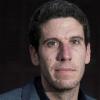Reducing the cost of energy production in the offshore wind energy field is a universally acknowledged short-term societal challenge. The greatest share of costs for this kind of structures is related to operation and maintenance activities, especially due to structural failures derived from a harsh operating environment or mechanical malfunctions, among others. Detecting fractures and other minor damages via real-time inversion to avoid the collapse of these structures would lead to a significant reduction of maintenance costs while limiting the number of required interventions to these structures (generally located far from the coast).
The main goal of MATHEOLO is to bring a significant contribution to the ecological transition through reliable intelligent algorithms monitoring the structural health of offshore wind platforms, thus supporting the digital transition in the design and maintenance of the platforms. To achieve this goal, we envision two objectives: (a) to design and implement physics-informed deep neural network architectures, loss functions, and error control algorithms to efficiently approximate physically meaningful solutions for forward and inverse problems governed by partial differential equations, and (b) to apply and successfully interpret measurements for a reliable warning system for offshore wind platforms.
The mathematical models and the physics-informed approach proposed in this project can be easily adapted and implemented for other offshore renewable energy infrastructures such as turbines and paddles for tidal energy, floating solar panels, etc. Also, our interdisciplinary project will bring more light on the mathematical analysis of DL algorithms which, despite their success in an impressive number of fields and applications, lack a profound theoretical analysis. By gathering top researchers with expertise in both theoretical and experimental fields, we are confident that we will foster the establishment of a solid theoretical framework for these promising classes of algorithms.
Although the development of floating offshore wind is still at an early stage in Spain, many national and international companies are already participating in initiatives related to floating wind: case studies, design, optimization and supply of components. In this context, MATHEOLO will bring the mathematical scientific advances closer to the industry agents. We will provide - through participation at industrial events and organization of periodic meetings and industrial courses - updates of our research. At the same time, we will gather new ideas, challenges, and future research directions. This will allow us to identify potential clients for our products, and also to achieve future collaboration contracts by the end of the Project, thus extending this research work beyond its duration.


